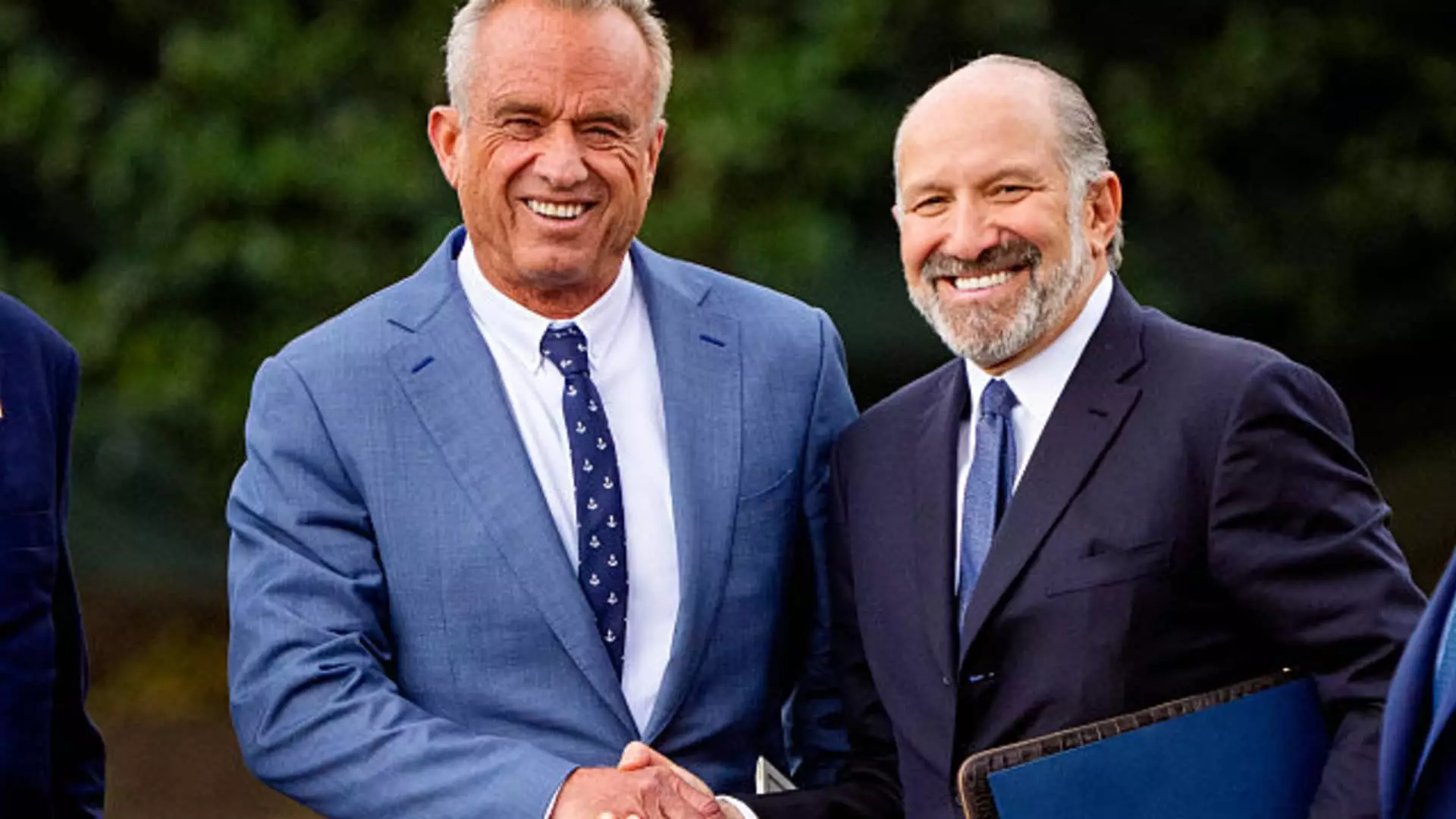The recent appointment of Robert F. Kennedy Jr. as Health and Human Services (HHS) Secretary raises significant questions about the integrity of public health in the United States. Government agencies should prioritize the safety and health of its citizens, and placing a known anti-vaccine activist in a prominent role undermines that principle. Kennedy’s history of promoting debunked theories and misinformation is alarming; public health decisions should not hinge on questionable anecdotes but rely on rigorous research.
Kennedy’s stance against vaccines, particularly his dismissal of the measles, mumps, and rubella (MMR) vaccine, poses immediate risks. As a society, we have seen the resurgence of diseases long thought to be eradicated due to widespread immunization. The impact of leaders with anti-science rhetoric can ripple across communities, eroding ethical frameworks established by decades of public health initiatives. This isn’t merely a contentious political appointment—it’s a direct threat to the health of the nation.
Public Health Experts in Outrage: The Ripple Effect
Kennedy’s appointment has triggered outrage not only among the general public but also from experts within the medical and scientific communities. The recent resignation of Peter Marks, the head of the FDA’s biologics division, exemplifies an internal rejection of anti-science agendas. Such a departure signals that even well-respected leaders feel threatened by the environment that Kennedy’s approach fosters.
The potential fallout for the FDA is significant. If qualified individuals are abandoning ship out of concern for their integrity and the agency’s mission, who remains to protect the public from misinformation? It raises the question: will science be relegated to the sidelines in favor of a narrative that promotes fear and distrust? The ramifications extend beyond organizational morale; they threaten to unravel the fabric of trust that exists between public health officials and the communities they serve.
An Alarmingly Divided Landscape
Kennedy’s activities carry implications that go beyond mere ideological disagreements. The broader cultural war surrounding vaccines has escalated into a polarizing debate that pits scientifically validated information against unsubstantiated claims. The space between cause and correlation has been exploited by pseudo-scientists who sensationalize anecdotes over empirical evidence. This dangerous rhetoric has already led to tragic outcomes, including preventable deaths linked to insufficient vaccination.
Take, for example, the horrifying reality of preventable diseases re-emerging as vaccination rates dwindle. The lingering myth that vaccines could lead to autism has undoubtedly fueled vaccine hesitancy, leading to outbreaks of diseases as frightening as measles. Consequently, we are at a crossroads; the task at hand is not merely about counteracting misinformation but actively re-establishing faith in science. Kennedy’s leadership could hinder these efforts, promoting a narrative that dangerously undermines facts.
The Market’s Distress Represents More Than Financial Impact
The stock market’s reaction to this appointment—the steep selloff of biotech shares like Moderna and Novavax—underscores the profound uncertainty that surrounds this decision. While some may begrudge the immediate economic concerns, this situation transcends market fluctuations. The stock performance signals a deeper societal apprehension that we should not overlook. Investors recognize that undermining public confidence in vaccination can destabilize entire sectors of the economy that depend on robust healthcare systems.
Bouncing back from these financial tremors is feasible, but reestablishing trust in health leadership is an endeavor that takes years and collective effort. If distrust festers among the public, the repercussions can limit corporate investment in healthcare innovation, something essential for advancing public health outcomes.
Hope Amidst the Chaos: Emphasizing Evidence-Based Leadership
Despite the overwhelming tide of misinformation perpetuated by figures like Kennedy, there remains a glimmer of hope. As the scientific community looks to counteract this wave of skepticism, the push for more rigorous communication regarding vaccine efficacy and safety becomes paramount. Public health campaigns need to be revitalized, steering narratives back toward transparency and evidence-based results.
To navigate through these turbulent times successfully, we must demand ethical leadership grounded in science, not sensationalism. As public vigilance rises, so should the calls for accountability within HHS. We cannot afford to have someone’s personal agenda jeopardize the collective health of society. Trust must be rebuilt through informed decision-making and leaders who prioritize the wellbeing of the public over conspiracy and conjecture.

Leave a Reply